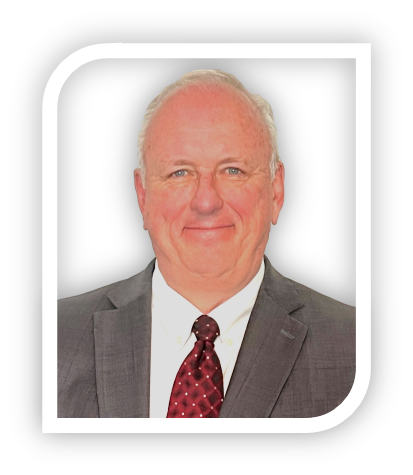|
HYDROTREATING & HYDROCRACKING PROCESS TECHNOLOGY |
“Instructor was excellent and freely shared experience. Topics were presented in a way that enabled questions and dialogue from everyone, which contributed even more to the workshop. The slides were very good and the binder material will make excellent reference material for the future. Also, very good and very practical discussions on process safety (what to avoid and lessons learned from past incidents). ”
— Director of Technology + Strategy, Crossbridge Energy, United States
“The Course was very interactive and the trainer was excellent.”
— Process Engineer, CITGO Corpus Christi Refinery, United States
“Really beginner-friendly, interactive environment with the instructor in which I felt very comfortable asking questions. Jeff Johns is a great Instructor on hydroprocessing, incorporating complicated concepts into a training that is easy to digest.”
— Technical Service Representative, Crystaphase, United States
“High level of knowledge, hit the important parts. ”
— Anonymous
“Instructor was very good at explaining information and finding better ways to explain when understanding was difficult.”
— CITGO, United States
| Schedule | Date | Time | PDH | Venue/Platform | Cost | Register |
|---|---|---|---|---|---|---|
| Fall 2024 | October 23 – 25, 2024 | 8:00 AM – 5:00 PM Central Time (UTC -6) *The last day ends at 12:00 PM. |
20 hrs. | Sheraton North Houston at George Bush Intercontinental Accepts in-person and virtual attendees |
US$2,600 |
| Outline: | ||||
|
|
|||
|
Who Should Attend:
This program is ideal for personnel involved in refinery process engineering, unit operations, catalyst research and development, catalyst sales, and refinery technical service. Engineers from design and construction companies as well as those who provide products and services to the petroleum refining industry should also find the program very useful and informative. Managers who have not had previous Hydroprocessing experience would also find this class to be very valuable. |
||||
| Instructor: | |

|
Jeff Johns has over 35 years’ experience in the petroleum refining industry. He was honored as a Chevron Hydroprocessing Fellow (Chevron’s highest technical recognition) for contributions to Chevron and to the industry. Jeff has expert knowledge of hydrocracker and hydrotreater design/operation, optimization, and troubleshooting, and has substantial experience in other key refinery processes. Jeff managed hydrocracking and hydrotreating technology in Chevron’s refineries worldwide where he developed and implemented best practices and projects to improve safety, reliability, and profitability. One of his special interests as a technology mentor was developing and delivering training. For 20 years, Jeff led an ad hoc Industry Committee of hydroprocessing experts dedicated to sharing safety and reliability information among North American Refiners. He was a member of the AFPM Q&A Panel in 2004 and directed multiple technology seminars as a member of the AFPM Q&A screening committee. Jeff served on the Board of Directors for Advanced Refining Technologies (ART). Jeff holds a B.S. degree in Chemical Engineering from the University of Utah. He holds six patents in hydroprocessing technology.
|

|
JKeith Wilson has over 37 years of major oil company engineering and research experience. He is a distinguished Engineer; an innovative and experienced Process Engineer with specialist knowledge across refining process technologies, including fuels and lubes hydrotreating, and catalytic naphtha reforming. He has a proven track record with global credibility for delivering solution-focused results. His experience spans technology development, early project planning and design engineering, process integration, optimization, modeling, project engineering, startup to operations, and troubleshooting. He has led European Technology Networks across hydroprocessing and naphtha reforming technologies along with improvement strategies resulting in a significant increase in cycle length of major processing units. Keith has Participated in various design studies and projects. He is experienced in general capability build for the design and operation of all significant process engineering equipment and control systems, including design of fractionating towers, drums, reactors, heat integration, and hydraulics systems. Keith Wilson holds a BSc (Hons) in Chemical Engineering from the University of Manchester, Institute of Science & Technology, Manchester, U.K.
|

|
Peter Marsh has more than 40 years’ experience in oil refining and engineering contracting businesses in various technical, operational and leadership roles. The majority of his career has been spent with BP where he worked at 4 different refineries and in the technical centre. He has specialist knowledge in all types of naphtha isomerisation and naphtha reforming processes and spent 9 years serving as a refining advisor providing technical support in these technologies to BP’s global refining portfolio. Activities included process technology training, troubleshooting, unit optimisation, turnaround and project support, developing process safety standards, promoting application of technology and sharing best practices. He has a strong focus on process safety, plant reliability and use of technology to enhance plant capability.
Mr. Marsh also has experience in many other refinery process technologies including crude distillation, hydrotreating, fluid catalytic cracking, catalytic polymerisation, alkylation and light ends separation processes. He served as lead process engineer for an EPC contractor on several major revamps of fluid catalytic cracking (FCC) units and a grass roots residue cracking unit. He is currently a self-employed consultant providing independent technical support to oil refineries. He is also a volunteer committee member of the Institution of Chemical Engineers (IChemE) Safety and Loss Prevention Special Interest Group. His primary focus area within this group to date has been learning lessons from process safety incidents. |
Discounts:
Becht offers the following discounts on Public Training:
The highest applicable discount will be applied; discounts are not additive.
- Early Registration – A 10% discount is to be provided when you register 30 days before the start date of the training.
- Group Rate – A group discount is applied when you send three or more people from your organization to the same course and provide a single payment.
- Yearly Commitment Discount – A 25% discount when you prepay for a minimum of 10 participants from your organization to any of the courses in the same year.
| No. of Registrants | Discount/Person | ||
|---|---|---|---|
| 3 | 10% | ||
| 4 – 6 | 20% | ||
| 7 and up | 25% |
Cancellation Policy:
Full refunds or course transfers are available 4 weeks prior to the class start date. Cancellations 2-4 weeks out are eligible for course transfers or a refund of 60% of the registration fee. Cancellations within 2 weeks of the class will not be eligible for a refund. For any inquiries, please email training01@becht.com.
